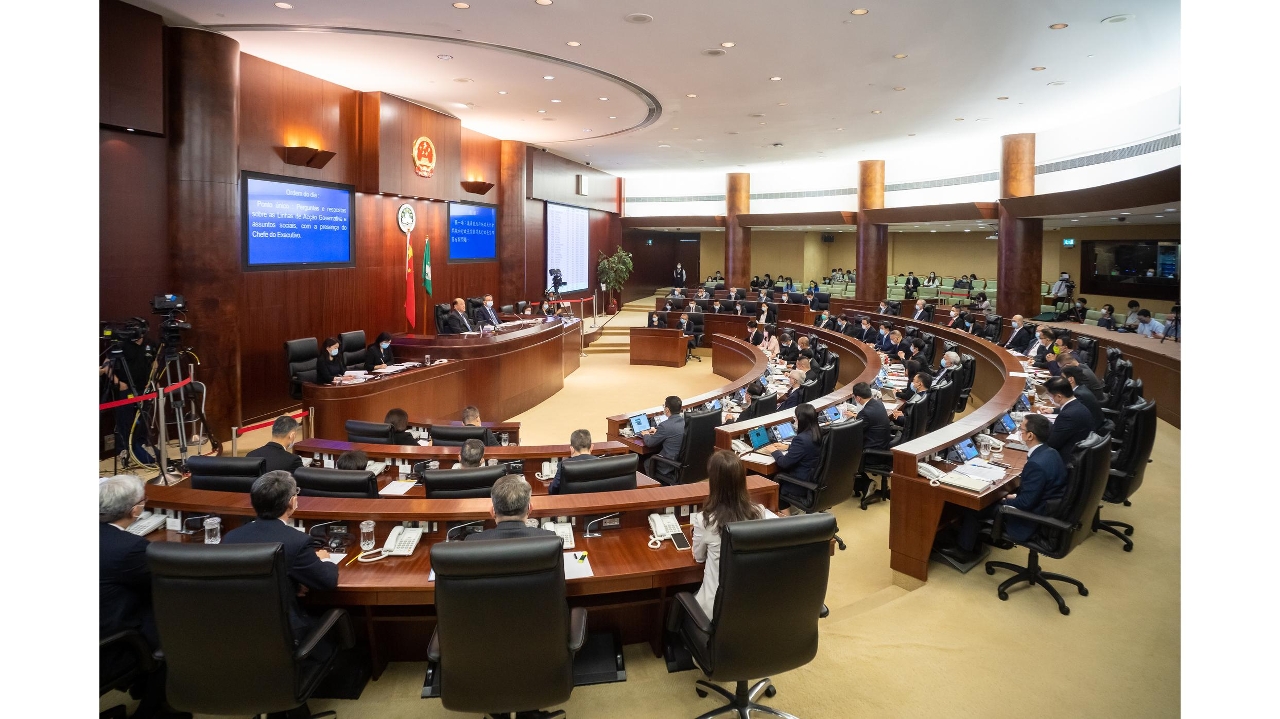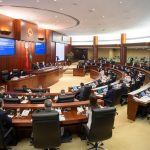
The Chief Executive, Mr Ho Iat Seng, said on Tuesday (12 April) the Government would optimise in a timely way its subsidised-training programme and job-matching service – and other relevant assistance – for those workers affected by the COVID-19 pandemic.
Mr Ho stressed the Government paid great attention to employment of local residents, when responding to questions from Legislative Assembly members during Tuesday’s plenary session there
Mr Ho said employment of local residents was key in terms of Government priorities. The unemployment rate had risen to 4.3 percent so far in 2022, from 2.9 percent in 2021. Mr Ho spoke highly of the six gaming concessionaires and sub-concessionaires, for demonstrating their commitment to social responsibility by not laying off their workers.
The Chief Executive gave more information on the Government’s initiatives to support the unemployed. A web page with information on vacancies and job-application procedures had been launched, he said. More than 6,000 vacancies, covering a variety of posts, had been registered with the web page. Mr Ho encouraged members of the public to consider fresh employment paths, as they might offer fresh opportunities.
In addition, the Government planned to optimise its paid-internship programme for higher education graduates, as well as the subsidised-training programme, encompassing the possibility of allowing more Macao ID holders to participate in such programmes and increasing the number of training courses.
The Government had stepped up its effort to resolve issues relating to local unemployment, and had been pressing ahead with effort regarding: 1. reducing the quota of non-resident workers in large-scale gaming resorts; and 2. managing non-resident worker quota to ensure local people in need of a job had work opportunities.
During Tuesday’s question-and-answer session, Mr Ho also provided additional information on the launch of a third round of the electronic consumption benefits plan. He said this year’s scheme would be similar to last year’s. A major consideration for the Government was how to assist local small and medium-sized enterprises, helping to ensure employment of local people.
The Government was pushing forward with relevant work, and hoped the fresh round of the electronic consumption benefits plan could be launched in May. The programme had to be approved by the Legislative Assembly, as it related to the amendment of the Government’s budget, said Mr Ho.
Mr Ho also shared information on efforts by the Government to promote local talent development. He said the Government would advance support to young people, in order for them to engage in four key industries, i.e., the ‘big health’ industry; modern financial services; new and high-technology industries; and cultural tourism, convention and exhibition, sports, and commercial and trade industries.
In addition, the Government was reviewing draft legislation regarding revamping the city’s system for importing talent from elsewhere, added Mr Ho.
Legislative Assembly members asked Mr Ho about opportunities available for the Macao public in Hengqin. Mr Ho said he had recently received approval from the Ministry of Finance and the State Taxation Administration, concerning policies to allow Macao residents working in Hengqin to enjoy a 15-percent personal income tax rate. This was a breakthrough in terms of the country’s policy, and Mr Ho expected more details of that taxation scheme to be announced shortly.
Regarding cross-boundary financial services, Mr Ho said it was an important sector within the local economy. It had outperformed other industries in recent years. Mr Ho called on the finance and insurance industries to make better use of their advantages and 2.5-trillion-pataca market size.
Regarding the tourism industry, the Chief Executive reiterated the Government’s strategy was to transform Macao into a world centre of tourism and leisure, with a tourism +” model to create synergy in other sectors.
Mr Ho noted the COVID-19 pandemic had wrought a huge impact on the local tourism industry. Nonetheless it was a critical time for the sector to reposition itself and open to other markets.


